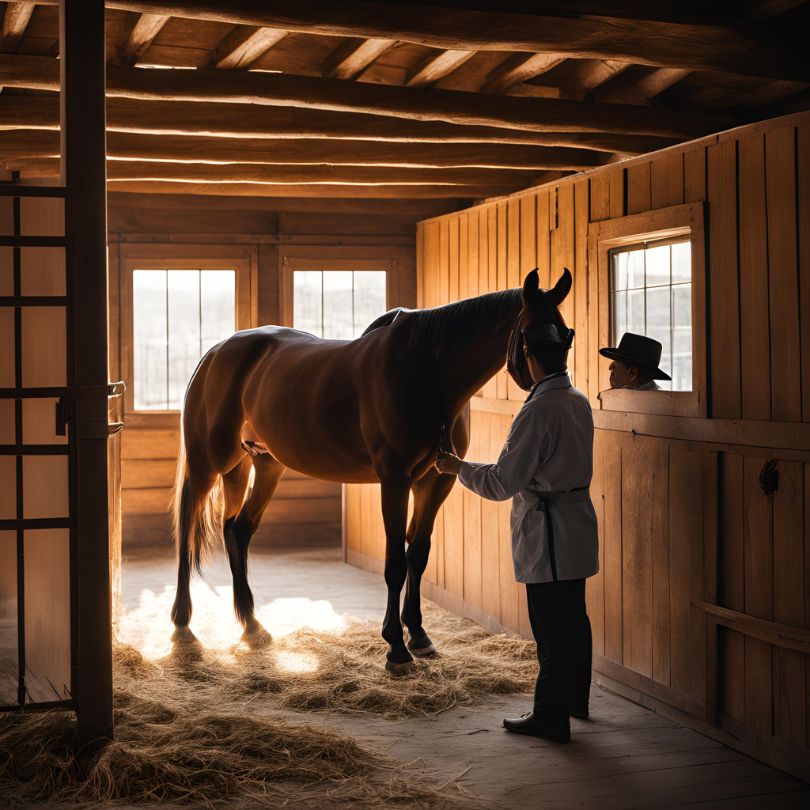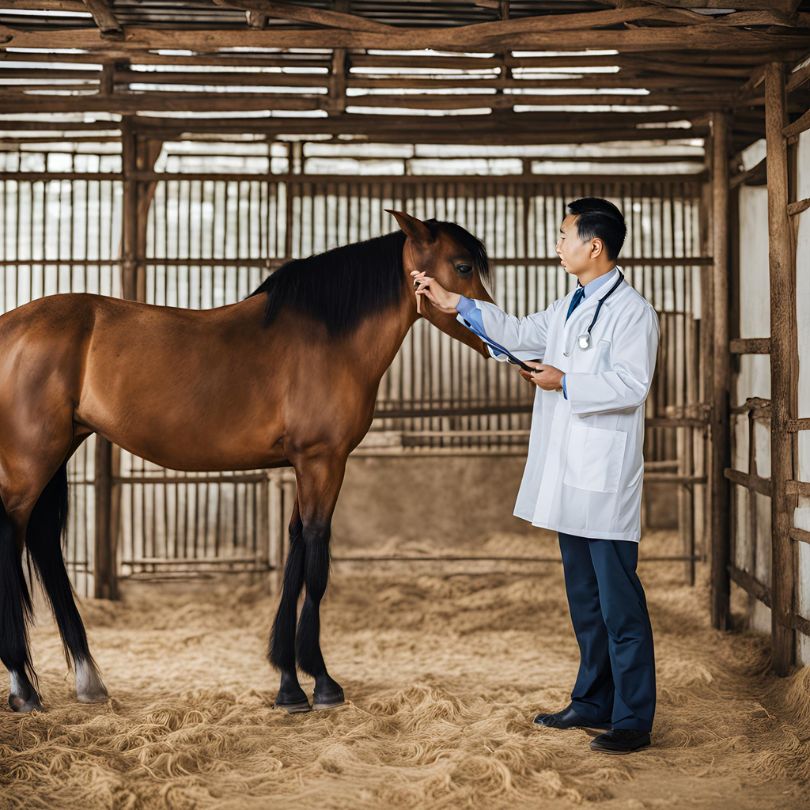Maintaining a regular vaccination and health check-up schedule for horses is essential to ensuring their longevity, performance, and overall health. Horses, like any other animals, are prone to various infections and diseases that can affect their quality of life. This guide will cover the key vaccinations, health checkups, and best practices for managing your horse’s health over time.
1. Understanding Core and Risk-Based Vaccines
Vaccines for horses are divided into two categories: core vaccines, which all horses should receive, and risk-based vaccines, which are recommended based on the horse’s lifestyle, location, and specific risk factors.
– Core Vaccines: These protect against diseases common in most regions and are essential for all horses.
– Tetanus: Protects against the Clostridium tetani bacteria, which can enter wounds and cause severe muscle contractions.
– Eastern and Western Equine Encephalomyelitis (EEE/WEE): These viral diseases are mosquito-borne and can cause neurological symptoms.
– West Nile Virus (WNV): Another mosquito-borne virus that affects the central nervous system and can be fatal.
– Rabies: Although uncommon, rabies is a fatal disease that can be transmitted from horses to humans.
– Risk-Based Vaccines: Depending on the horse’s environment and exposure risks, additional vaccines may be recommended.
– Equine Herpesvirus (EHV): Protects against respiratory and neurological diseases, especially important in horses that travel or compete.
– Equine Influenza: Vital for horses in areas where this virus is prevalent or those who come into contact with other horses.
– Strangles: Recommended for horses that travel or are in high-contact environments, as Strangles is a highly contagious respiratory infection.
– Potomac Horse Fever: Recommended in areas where this bacteria-transmitted disease is prevalent, especially near rivers and lakes.
2. Recommended Vaccination Schedule
Vaccination schedules can vary based on age, environment, and health status. Here’s a general timeline:
– Foals (up to 6 months): Start with core vaccines at around 4-6 months of age, as maternal antibodies begin to wane.
– Adult Horses (6 months and older): After completing initial vaccines, adult horses typically receive annual or bi-annual boosters, depending on the vaccine.
– Senior Horses: Continue annual vaccinations, but consult with your veterinarian if there are any specific needs related to aging.
Always work closely with a veterinarian to determine the exact vaccination schedule that best fits your horse’s individual needs.

3. Routine Health Check-Ups for Horses
Routine health checks are critical to catching potential issues early and ensuring your horse stays in top condition. Here are the primary elements of a horse health check-up:
– Dental Examinations: Horses’ teeth continuously grow, so regular dental checks (every 6-12 months) are essential to prevent problems like sharp edges, infections, or poor alignment.
– Hoof Care: Hooves should be trimmed every 4-8 weeks, depending on growth rates and terrain. Regular hoof care helps prevent lameness and infections like thrush.
– Parasite Control: Deworming schedules can vary by region and barn management practices, but generally, horses should undergo regular fecal testing and deworming as recommended by the veterinarian.
– Body Condition Scoring (BCS): Monitoring weight and body condition helps ensure that your horse is in optimal health. Horses should ideally fall within a BCS of 4-6 on a 9-point scale.
– Exercise and Mobility Check: Regular assessment of your horse’s movement can catch early signs of joint issues, muscle stiffness, or lameness.
4. Environmental and Lifestyle Considerations
Each horse’s vaccination and health needs may vary based on their environment:
– Stable Management: Horses kept in closed facilities or those that travel frequently require different health protocols than pasture-kept horses.
– Weather and Climate: Horses in warmer, mosquito-prone climates may need additional WNV protection, while those in colder regions may have specific needs for respiratory health.
– Travel and Competition: Horses that are frequently transported or compete should have additional checks and possibly more frequent risk-based vaccines.

5. Monitoring for Health Issues
Early detection is key in managing a horse’s health. Regularly check for these common signs:
– Behavioral Changes: Sudden changes in behavior or temperament can signal underlying issues.
– Appetite and Digestion: Monitor feeding habits, water intake, and digestion, as irregularities can indicate health problems.
– Vital Signs: A horse’s normal heart rate, respiration, and temperature can vary, but any abnormality should be checked by a vet.
Following a consistent vaccination and health check schedule will help keep your horse healthy and reduce the risk of disease. Maintaining good stable practices, being observant of your horse’s behavior, and partnering with a veterinarian will go a long way in ensuring that your horse stays active, healthy, and happy throughout their life. Regular preventive care and health monitoring are investments that pay off in improved performance, longevity, and quality of life for your horse.

